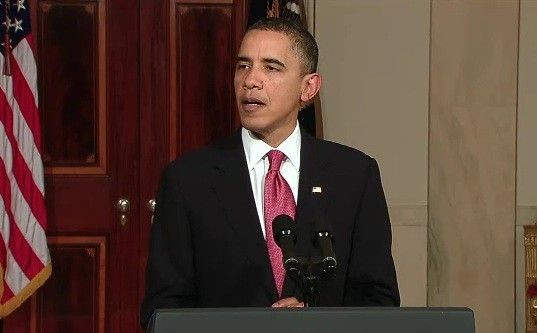US says Egypt failing to meet protest concerns

Egypt must do more to meet protesters' demands for political change, the United States said on Wednesday in a sharp escalation of rhetoric with one of its most important allies in the Middle East.
Washington is waiting for real, concrete moves to speed the transition, White House spokesman Robert Gibbs said after Egyptian Foreign Minister Ahmed Aboul Gheit suggested the United States was eager to impose its will on Cairo.
What you see happening on the streets of Cairo is not all that surprising when you see the lack of steps that their government has taken to meet their concerns, Gibbs said.
Israeli Defense Minister Ehud Barak held meetings at the White House as the United States and another key ally weighed the impact of Egypt's crisis on stability in the Middle East.
U.S. Vice President Joe Biden on Tuesday set out steps Egypt must take in the face of unrelenting protests against President Hosni Mubarak, bluntly telling his government to stop harassing protesters and immediately repeal an emergency law allowing detention without charge.
The demands appeared aimed at raising pressure on Mubarak's handpicked vice president, Omar Suleiman, the former intelligence chief who is negotiating with opposition figures demanding Mubarak's immediate ouster.
'NEVER GO BACK'
A lot has changed in Egypt, just within the period of the last week, Ben Rhodes, a deputy national security adviser, told journalists on a conference call. We believe it can never go back to being the way it was.
Mubarak has given no indication he will step down, saying only that he will not run in September elections.
Aboul Gheit, in an interview with the PBS NewsHour program, said Biden's advice was not at all helpful and that he was amazed by the suggestion the emergency law should go.
We have 17,000 prisoners loose in the streets, out of jails that have been destroyed. How can you ask me to sort of disband that emergency law while I'm in difficulty? he said.
Give me time, allow me to have control, to stabilize the nation, to stabilize the state, and then we would look into the issue.
Gibbs said Mubarak's administration appeared out of touch.
I think it is clear that the Egyptian government is going to have to take some real, concrete steps in order to meet the threshold that the people of Egypt, that they represent, require from their government.
President Barack Obama discussed Egypt with Saudi Arabia's King Abdullah on Wednesday and emphasized the U.S. commitment to security in the region, the White House said.
The Obama administration has struggled to calibrate its message on Egypt, where the protests have raised fears of Islamist radicalization that could threaten Cairo's 1979 peace accord with Israel and its role in Middle East peace efforts.
Egypt's strategic importance to the United States includes its role as guardian of the Suez Canal, a route for oil imports to the West, and as a counterweight in the region to Iran.
'UNSHAKABLE COMMITMENT'
But Israel -- one of the biggest recipients of U.S. aid -- is also a factor. Israeli officials have said the turmoil in Egypt may require the Jewish state to bolster its might.
Barak, in his first visit to Washington since the crisis erupted, met Defense Secretary Robert Gates, Secretary of State Hillary Clinton and Thomas Donilon, Obama's national security adviser.
The U.S. officials stressed Washington's unshakable commitment to Israel's security, including through our continued support for Israel's military, and the unprecedented security cooperation between our two governments, the White House said in a statement after the meeting.
With calls for an orderly transition, the United States hopes the $1.3 billion in annual aid it gives Egypt's military is a stabilizing factor. But the idea of putting conditions on that aid was a hot topic at a hearing in the U.S. House of Representatives on Wednesday.
Howard Berman, the top Democrat on the House Foreign Affairs Committee, said aid should continue so long as the military is playing a constructive role in bringing about a democratic transition.
A new Reuters/Ipsos poll showed a majority of Americans believe the United States should be cautious about backing democracy in the Middle East because elections could lead to anti-U.S. Islamist governments.
© Copyright Thomson Reuters 2024. All rights reserved.





















